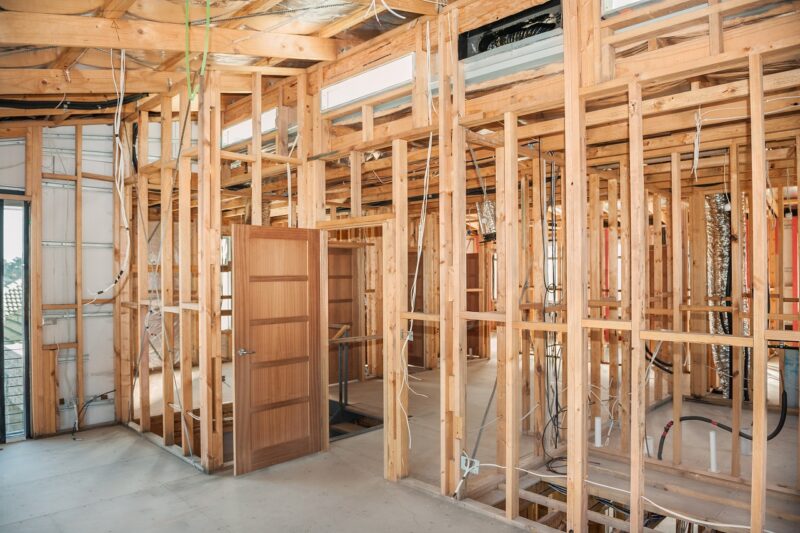Published: 05/02/25 By: Mike Bekin
Wall studs are long, fairly slim timber boards which fit vertically into your stud wall. They are attached between your top and sole plates and provide crucial structural support for your frame, allowing plaster boards to be attached to your stud wall. In other words, they are pretty important!
But from which timber should your wall studs be made? We have everything you need to know in this guide.
What You Need From Wall Stud Timber
When choosing a timber species for your wall studs, there are some key characteristics you need to look out for. These can vary depending on your project but in general, we recommend a timber which is:
- Strong and durable
- Very well kiln dried, so it is stable
- Has good resistance to humidity and water (especially if your stud wall will be anywhere near the exterior of the building or areas with higher humidity)
- Budget-friendly
As it is going to be hidden, you do not need to worry about aesthetics. Do remember, though, that imperfections in timber (such as a lot of knots and cracks) can reduce the strength and durability of your timber – therefore, make sure you buy machine graded wood.
The best Timber for Wall Studs
One of the top choices for wall studs is softwood timber. Softwoods such as Pine and Spruce are typically more cost-effective than hardwoods, making them a great choice for budget-friendly stud walls. However, your wall stud timber also needs to be durable and tough, which is why we recommend kiln-dried softwood (also known as carcassing timber).
A Thermo-modified Radiate Pine, for example, has been treated under heat and pressure to create a hardier timber, and it will tick all the boxes for wall studs, except the strength grade. So we recommend going for standard KD carcassing, as long as it is from FSC-certified forests
Softwoods also tend to be easier to work than hardwoods thanks to being less dense. This makes for a quicker, smoother project, especially if you are DIY-ing your stud wall.
Should You Choose Hardwood Timber for Wall Studs?
As stud walls do not tend to be load-bearing, a super-strong hardwood is not always needed. However, if you would like certain knowledge that your wall can take a lot of weight, you can use a hardwood species such as Oak, turning your building into an oak frame. This is likely to be more expensive than softwood and will be trickier to work with, but it will provide greater strength once in use.
Do not Forget Sustainability
Whenever you are choosing timber for a project, always consider the sustainability of your species. This is a great way to add green points to your project and do your bit to help the planet – and it does not have to be difficult or expensive!
At EcoChoice, we supply FSC and PEFC-certified timber to construction projects around the UK. By opting for our sustainable species and skipping chemical treatments for a more organic option, e.g. our ThermoWood, you will instantly boost the eco-credentials of your wall studs.
Learn more or start an order by getting in touch with our friendly team today. When it comes to your timber, we are always happy to help.
Tags: Timber, wall studs
Categories: Insights
